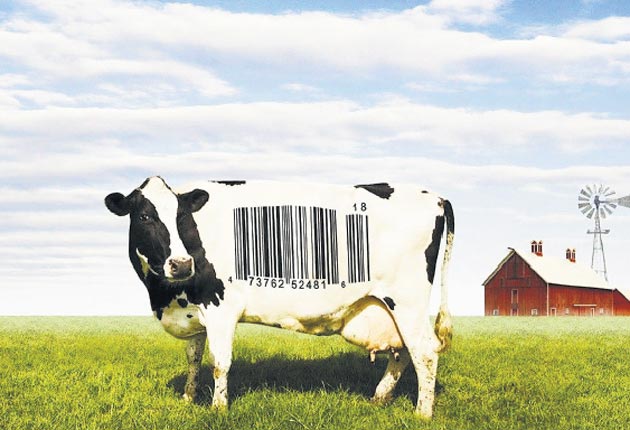The barcode’s days are numbered
Brands will work together to harmonise data labelling

Your support helps us to tell the story
From reproductive rights to climate change to Big Tech, The Independent is on the ground when the story is developing. Whether it's investigating the financials of Elon Musk's pro-Trump PAC or producing our latest documentary, 'The A Word', which shines a light on the American women fighting for reproductive rights, we know how important it is to parse out the facts from the messaging.
At such a critical moment in US history, we need reporters on the ground. Your donation allows us to keep sending journalists to speak to both sides of the story.
The Independent is trusted by Americans across the entire political spectrum. And unlike many other quality news outlets, we choose not to lock Americans out of our reporting and analysis with paywalls. We believe quality journalism should be available to everyone, paid for by those who can afford it.
Your support makes all the difference.The basic barcode is just not up to the job in an age where shoppers demanding far greater transparency about products and store owners need more information to help with stock taking and product recalls.
Tech-savy consumers increasingly want to be able to read such information as ingredients, allergens or country of origin online or with their smartphone, according to Kees Jacobs, consultant at Cap Gemini. Jacobs is working with the world's top retailers and food manufacturers to try to agree new global standards for labels and product data.
"The current barcode is not sufficient to be the carrier of much more granular information that is needed," he told Reuters.
The bigger challenge remains gathering, storing and standardising the information in the first place, he said.
According to Reuters, companies and groups such as the Consumer Goods Forum (CGF), a global network of some 400 retailers and manufacturers from 70 countries, is now coordinating efforts to harmonise product data and labelling.
Most firms accept that more transparency is needed after food scandals, such as the horsemeat scandal in 2013. But it can prove hard to persuade them to share data that many see as commercially sensitive.
GS1, a non-profit organisation that assigns the unique numbers in barcodes, has developed a double-layered barcode it calls the ‘data bar’ which can carry some extra details such as expiry date, quantity, batch or lot number. It already holds data from 30,0000 companies on some 18 million products.
"I am convinced we will have a day where pretty much all information about all products will be available to all consumers," said Malcom Bowden, president of global solutions at GSA1.
Bowden predicts different systems will probably have to coexist for the next decade or so as retailers and logistics providers gradually upgrade their scanning systems.
Join our commenting forum
Join thought-provoking conversations, follow other Independent readers and see their replies
Comments